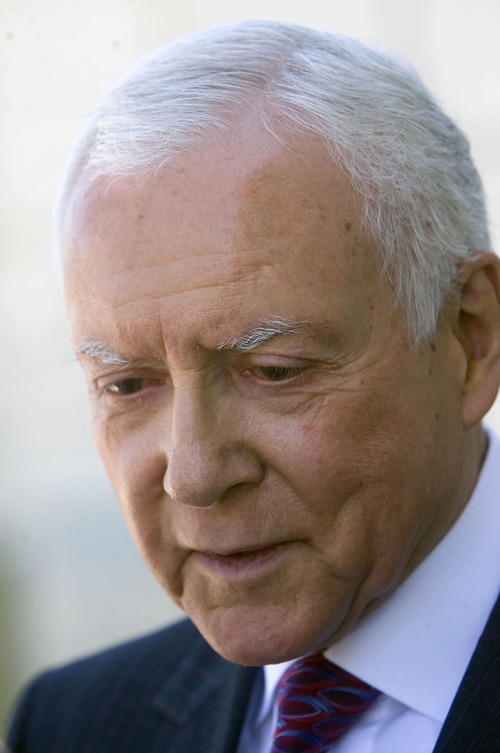This is an archived article that was published on sltrib.com in 2011, and information in the article may be outdated. It is provided only for personal research purposes and may not be reprinted.
Washington • For Sen. Orrin Hatch, the Senate's rejection of the balanced budget amendment was just the latest setback in a crusade he has led for decades.
And for first-year Sen. Mike Lee, it was the death of the legislation closest to his heart.
For most of the year, Hatch and Lee, Utah's two senators, rallied their fellow Republicans around the plan that requires Congress to spend only as much as it takes in, saying it was necessary to reduce and eventually eliminate the nation's $15 trillion debt.
"If spending were a drug, Congress would be a very pathetic addict," said Hatch, who has touted such a proposal since joining the Senate in 1977. "Congress will not kick its overspending addiction alone, but only if required to do so by the Constitution itself."
The amendment failed on a 47-53 vote, far short of the two-thirds requirement. All 47 Republicans voted for it, but the Democrats saw the Hatch-Lee amendment as unnecessary and overly restrictive.
The only reason the Democratic-controlled Senate even voted on their proposal Wednesday is that it was required to. Congress promised to vote on balanced budget amendments by the end of the year under a deal negotiated in August that allowed the nation to increase its borrowing power.
The Hatch-Lee amendment would have capped spending at 18 percent of the nation's annual production value, a cut of about 7 percent from current levels. It would also require a two-thirds vote of Congress to raise taxes or the nation's debt limit.
Congress could remove the budget restrictions if there was a declaration of war, a three-fifths vote in times of a military conflict or a two-thirds vote of both chambers.
The Senate also rejected a tamer version of the amendment, sponsored by Sen. Mark Udall, D-Colo., on a 21-79 vote. Udall's amendment had no caps on gross domestic product and doesn't require a supermajority vote to raise taxes.
Hatch and Lee argued that Udall's amendment would make it too easy for Congress to continue to spend more than it brings in, while Udall said the Hatch-Lee amendment made it too difficult for Congress to respond to a disaster.
The White House issued statements announcing its opposition to both amendments, saying that Congress doesn't need an amendment to balance the budget. The White House said the Hatch-Lee amendment would cause severe cuts to Medicare and Social Security and, if in place in recent years, would have risked a deeper economic crisis.
Sen. Patrick Leahy, D-Vt., called the proposal "bumper sticker politics, and it is a bad solution."
The Republican-controlled House voted on a version of the balanced budget amendment in mid-November, coming up 23 votes short. Utah's three House members, including Democrat Jim Matheson, supported that legislation.
The only time Congress came close to passing such a constitutional amendment was in 1997, when more than two-thirds of the House signed off and the Senate came in one vote short. Hatch also was the primary sponsor of that amendment.
If Congress did sign off on an amendment, it would still require the ratification of three-fourths of the states.
Twitter: @mattcanham



